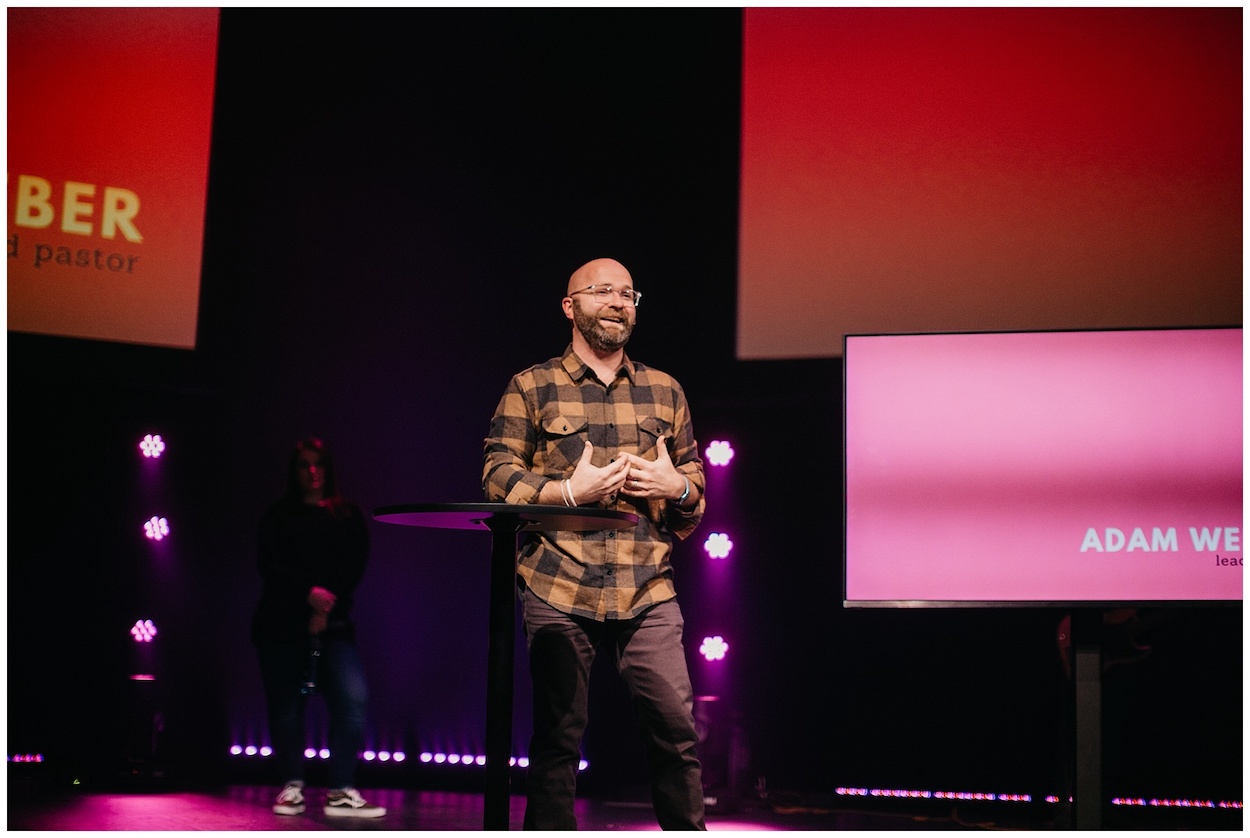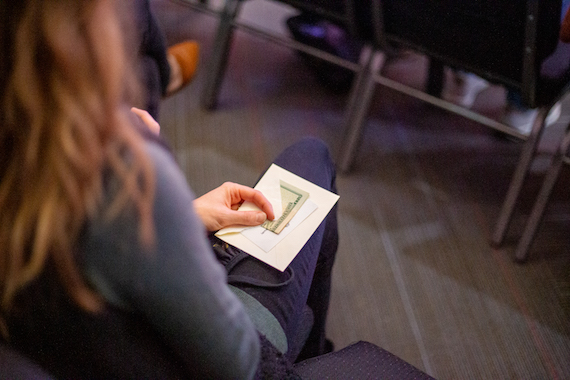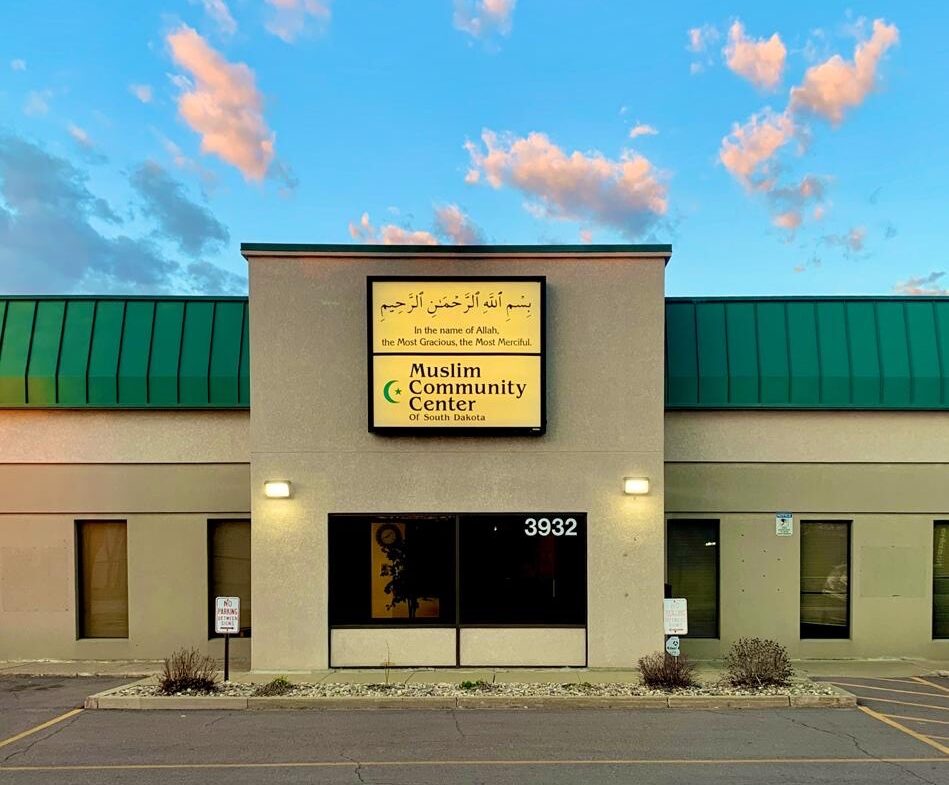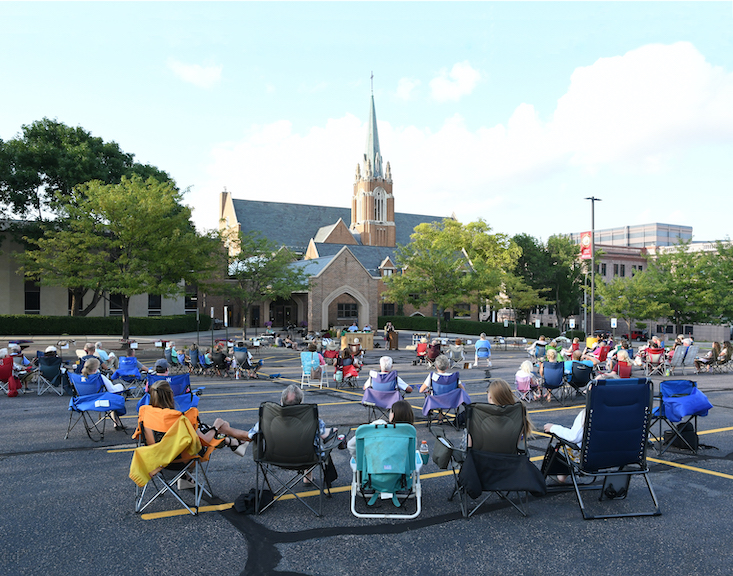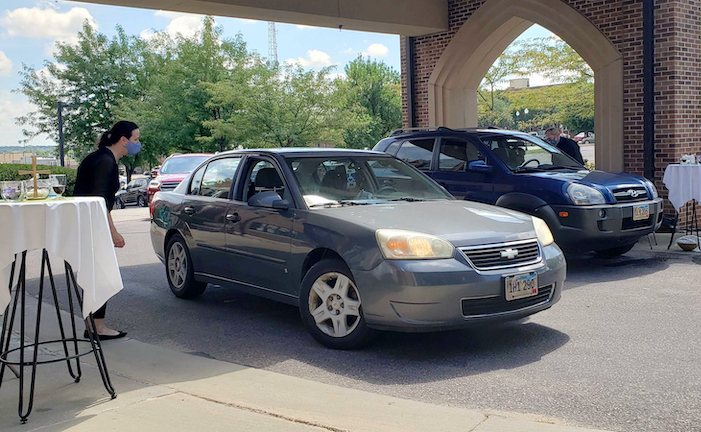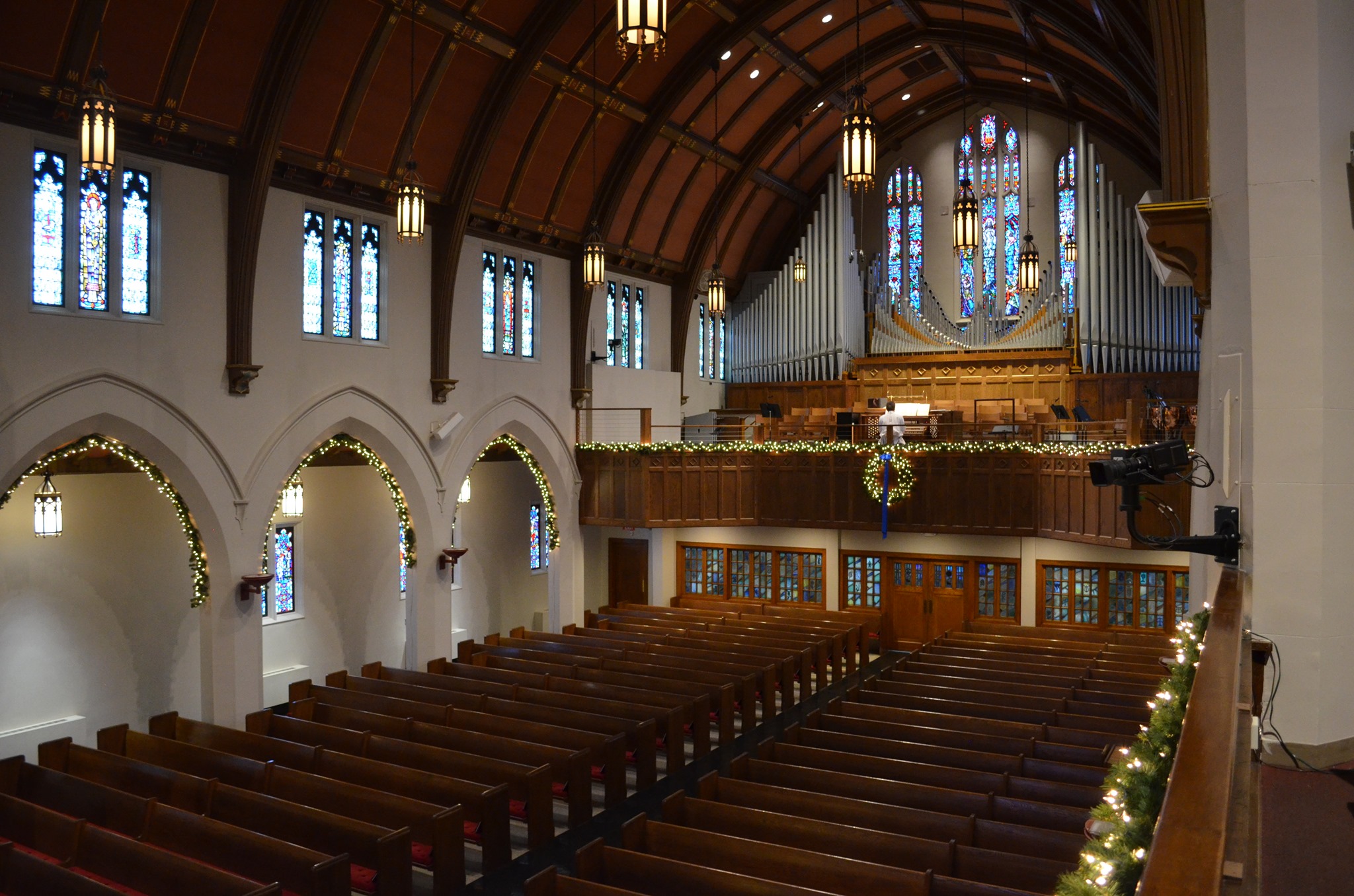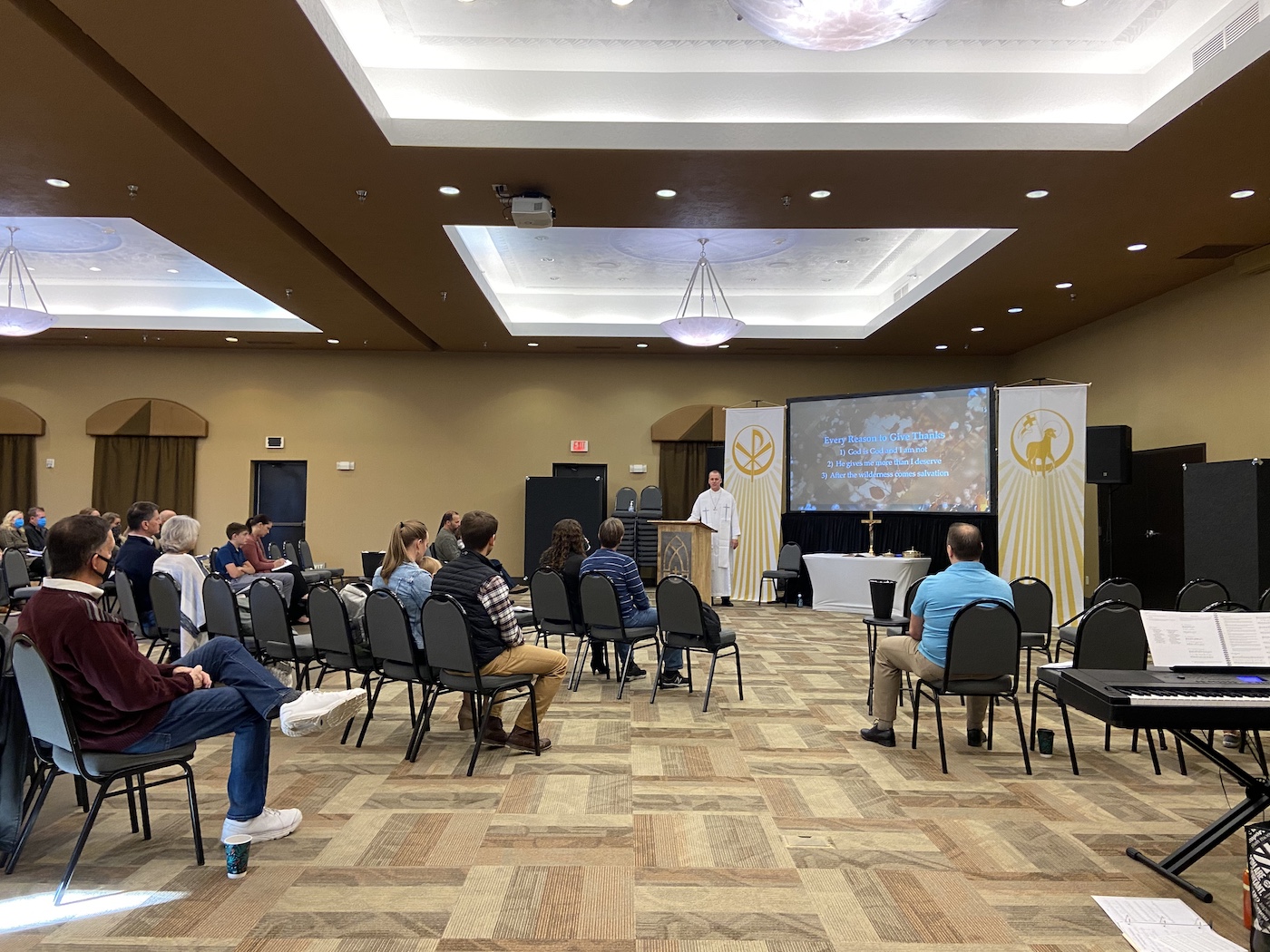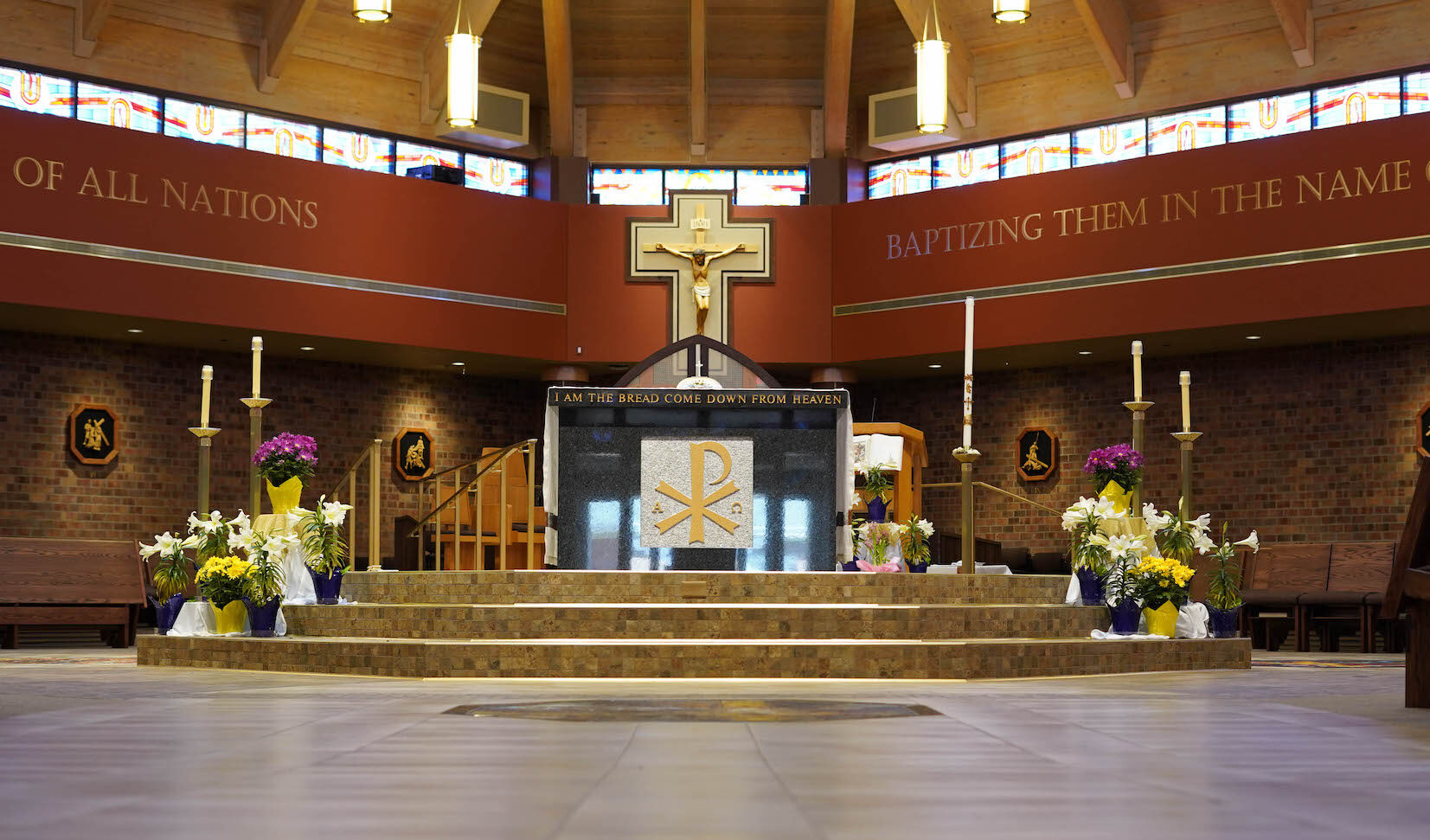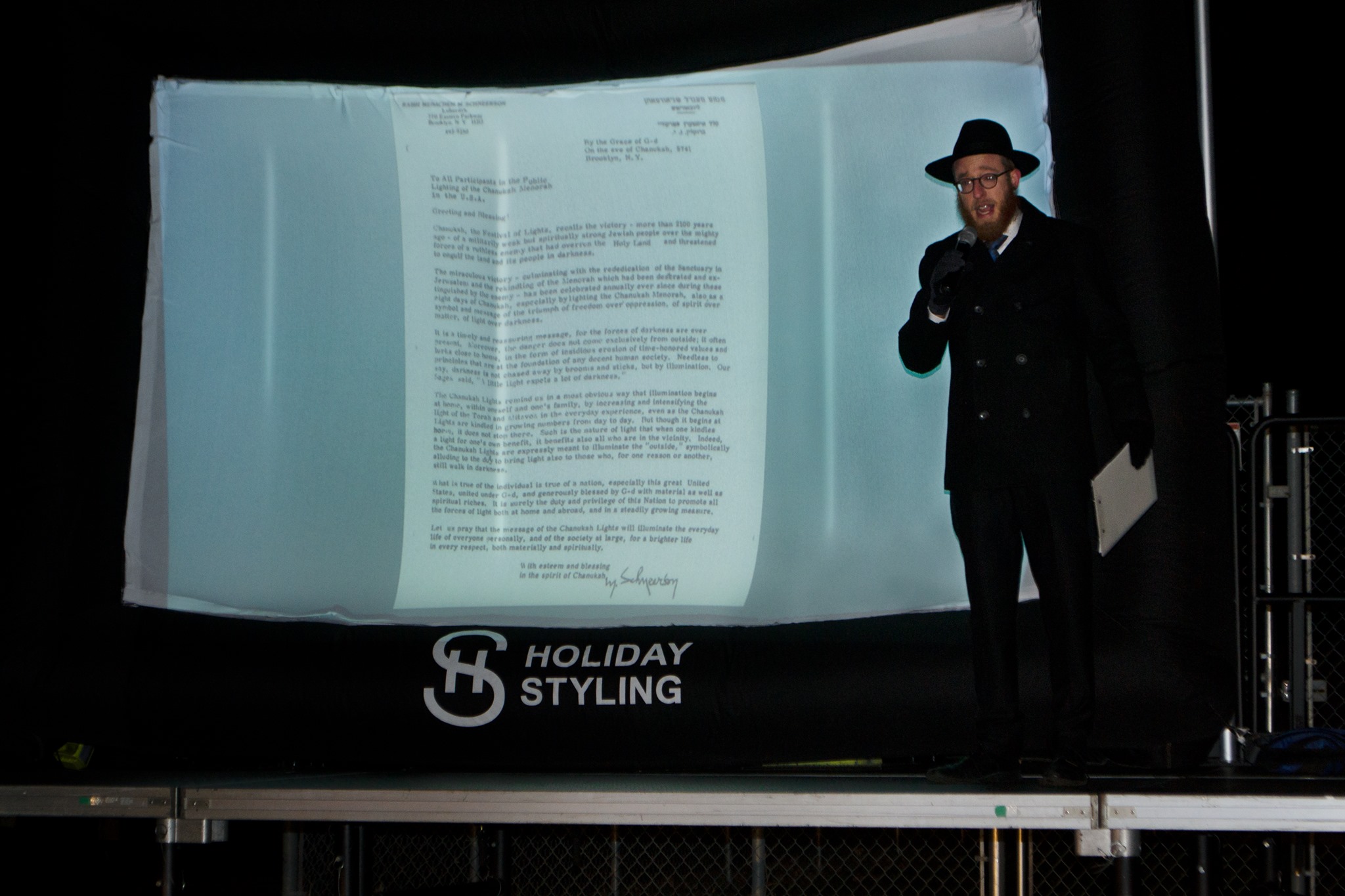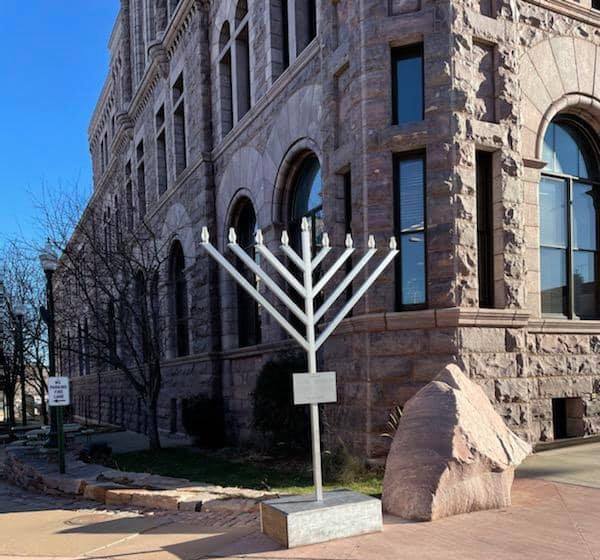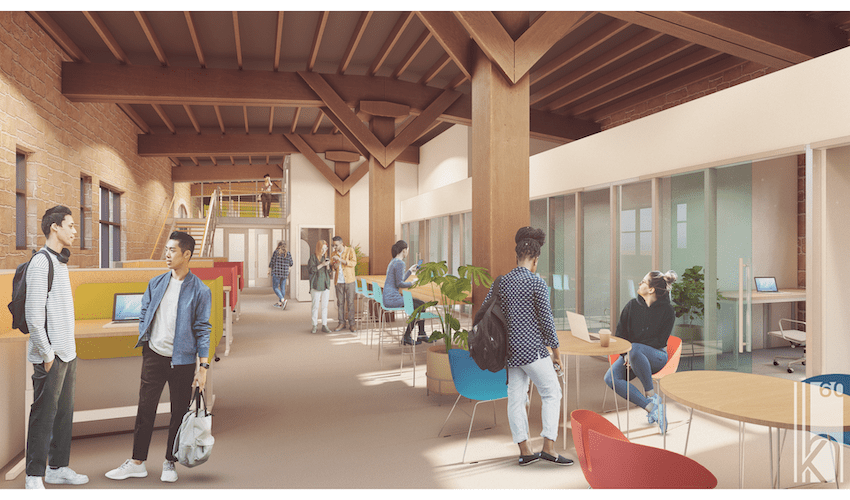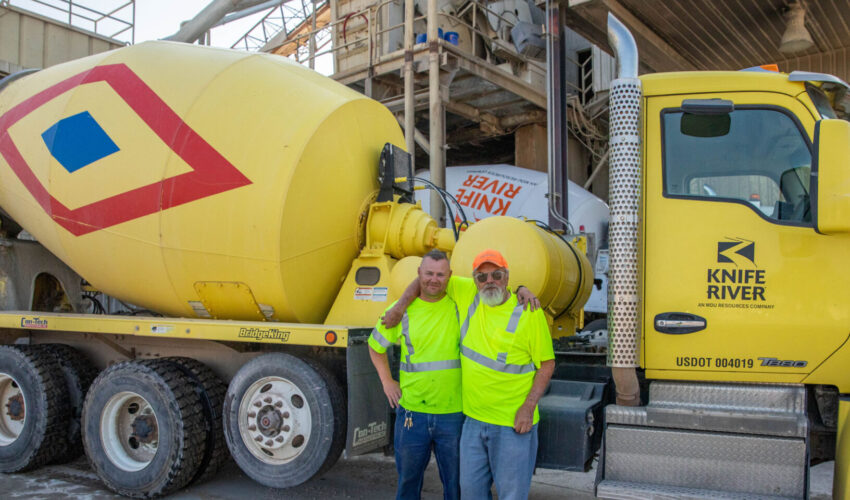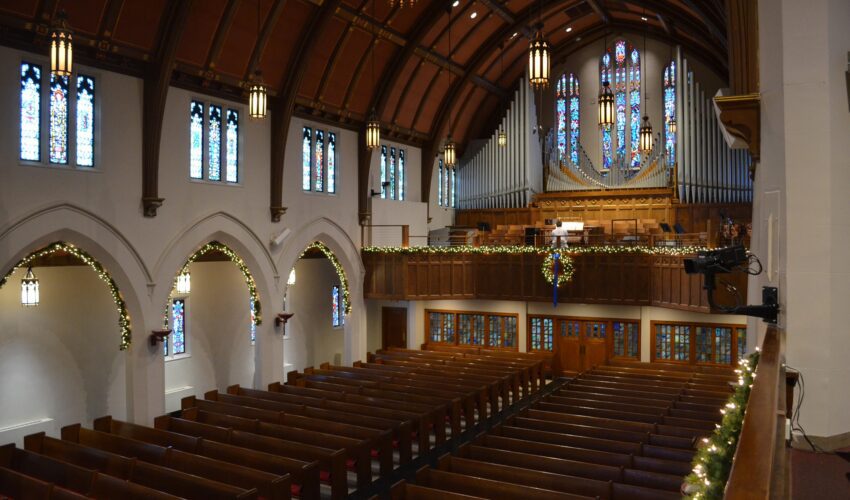Finding new ways to worship: Area religious groups adapt their offerings, face challenges
Dec. 21, 2020
By Andrea Van Essen, for SiouxFalls.Business
At their core, religious communities are built for difficult times, providing both physical and spiritual care for their members.
But COVID-19 presented a dual challenge: supporting those members during a time of high need while adapting the ways churches themselves provide services.
This Christmas will bring another set of changes for area churches, which already have spent months finding creative ways to meet people’s spiritual needs and maintain fellowship.
Unprecedented demand for prayer
With four campuses, including one in the Twin Cities, Embrace Church has always had an online presence for its services, allowing the church to adapt to COVID restrictions with relative ease. Services are streamed to all campuses from the main location on East 57th Street, with an emphasis on audiovisual quality.
The church has prioritized following the city’s guidelines from the start, lead pastor and founder Adam Weber said.
Embrace remained online-only until summer, when city guidelines allowed for more in-person gatherings. The church has continued to follow the city’s lead, requiring masks for worshippers as soon as the mandate passed.
Like many churches, Weber said the pandemic has been a driver to improve technology, as well as to move forward on ideas Embrace had been wanting to pursue. The church is working on adding a production room and hiring another person for its video team to create higher quality content for various ministries.
It hasn’t all been silver linings, though. Weber said he has never received so many prayer requests from people who are struggling.
“We’ve really been encouraging people to take care of themselves physically but also mentally,” he said. “Where we are emotionally and spiritually right now, it’s a huge concern.”
Weber said he is grateful to have a strong pastoral care team, but he knows many churches are not so fortunate. In an attempt to ease some of their burdens, he has made his messages accessible to other pastors.
“We currently have 10 other churches using our messages,” he said. “I’ve been telling pastors, I can preach for you via video, and you can focus on pastoral care. I know there are so many pastors who are just hanging on.”
Giving is another key element of a church’s sustainability, and Weber said Embrace has not seen a dip in that area.
“It’s almost miraculous, and because of that, we’re planning to give away more than we ever have before — not because we’re well-off, but we’ve felt challenged to step up. We’ve really buckled down in our spending, so we can give even more.”
In fact, on Dec. 5, attendees at all Embrace campuses received what Weber called a “reverse offering.” The church gave away $15,000 to attendees in $10 to $100 increments, urging them to bless someone else with the money or use it for an unmet need.
For holiday services, Weber said the main difference will be a shift from inviting people to attend in person to simply encouraging them to find a way to worship, whether that’s in person with necessary precautions or online.
“The truth is, you can worship anywhere, and while there’s something special about gathering with people, that might look different this year.”
Muslim Community Center aims to set example
At the Muslim Community Center of South Dakota, or MCCSD, public health has taken priority over a practice that is inherently congregational.
“It has been tough this year. We obviously had to modify how many people can gather and how we do prayer services,” said Mohammad Qamar, MCCSD’s director of interfaith dialogue and community outreach.
“Most of our board members are actually physicians, and so for us, it was easier to come to this decision. We closed down the mosque for prayer services for the first four weeks until we came up with a plan of action as far as how to open up.”
Once MCCSD reopened, there were limits on how many people could gather, marked space for 6-foot social distancing and mandated masks. Daily congregational prayers have been limited to Fridays.
“In the Muslim tradition, we have five daily prayers, and it is recommended that you pray in congregation at the mosque, so that was a little tough,” Qamar said.
Another challenge was the center’s tradition of a monthly potluck, which had to be canceled.
“The toughest part was during the month of Ramadan, which is the busiest time of year for Muslim centers everywhere,” Qamar said. “Most of the community tries to gather once a day to break the fast, and it’s a very festive occasion. This year, we had to abandon that.”
Both Ramadan and the holiday celebration of the hajj were canceled, and Qamar said most centers across America did the same. He added that this was probably the first time in human history that the hajj, in which nearly 3 million people gather in Mecca, Saudi Arabia, was curtailed to about 8,000 people.
But Qamar said the community has been supportive and appreciative of MCCSD’s efforts to offer online prayers, sermons and classes.
Ultimately, he hopes to encourage his community to follow precautions and receive the vaccine when they are able, so life and worship can go back to normal.
“I’m from the health care field myself, and I think it’s our duty to encourage people not just to follow the guidelines, but to learn about the vaccine and dispel myths and rumors, so that we can all get vaccinated and get over this.”
Maintaining community through virtual offerings
First Lutheran Church in downtown Sioux Falls is one of the state’s largest Lutheran congregations. Senior pastor the Rev. Dr. John Christopherson said the church has worked tirelessly to remain a safe place for worship.
Early on, a COVID-19 task force was formed, meeting every other week via Zoom to discuss loosening or tightening restrictions.
Beginning in March, the church prioritized CDC guidelines, making masks mandatory, enforcing distancing and setting up handwashing stations throughout the building. In the summer, First Lutheran hosted outdoor services and drive-up Communion in the parking lot.
Indoor worship and activities returned in October, but after COVID numbers skyrocketed in November, small-group activities were suspended again.
“I really want to give kudos to our communications team,” Christopherson said. “With their leadership, the staff has been very creative in terms of trying to be personal in the midst of what has become a very impersonal, socially distant culture.”
First Lutheran benefits from a strong media ministry as well, with a telecast that reaches roughly 3,000 households in a four-state area. On Easter, more than 7,000 households tuned in.
“To look on the bright side, God’s word is going out in ways we’ve never imagined before, just as it did in the time of the Reformation when the printing press was invented. So it is today — we have the ability to get the word out in a variety of media that we either weren’t aware of or weren’t utilizing,” Christopherson said.
While in-person worship was suspended, church members volunteered for a phone-buddy program. Twice a week, they called members in nursing homes, assisted living centers and anyone who was isolated to maintain a connection.
The church council and task force debated the best approach for holiday services for quite some time. Historically, the Christmas Eve services have surpassed 1,200 attendees.
On Dec. 18, the council made the difficult decision to cancel in-person services for the remainder of the month, including Christmas. The services will be livestreamed on YouTube and aired on television.
Startup church builds COVID response from scratch
For a young pastor in Brandon, the pandemic struck right as he was working to build up a congregation.
Sure Foundation Lutheran Church is a mission of two Wisconsin Evangelical Lutheran Synod, or WELS, congregations in Sioux Falls, Bethel Evangelical and Good Shepherd, that saw a need in the Brandon community.
The Rev. Craig Wilke was called to head up the mission church, which essentially entailed building it from scratch. Wilke and his wife moved to Brandon in July 2019 and began operating in an unofficial capacity, hosting Bible studies and fellowship events to create community.
The plan was to launch worship services in September 2020, and Sure Foundation was able to stick to that timeline, albeit with a few curveballs along the way. When COVID first hit, the church had to switch its Bible study to Zoom, and when the time came to launch worship services, it faced an issue with its planned venue.
Mission churches typically don’t acquire a building of their own for several years, and the plan was to rent space from the local school. With COVID restrictions in the school district, that fell through, forcing Sure Foundation to hunt for a new venue.
The congregation landed at the Holiday Inn Express, but when the hotel’s busy season ramps back up, it will need to find a new location.
“Realistically speaking, we’re at least three to five years out from getting a church building, so we’re kind of bouncing around from rental to rental,” Wilke said.
As far as COVID precautions, Wilke surveyed members of his congregation to gauge their comfort level. Wearing masks is encouraged, and Bible study is both in person and via Zoom. For those who can’t attend worship, Wilke offers a podcast version of his sermon.
With the church’s relatively small numbers, it’s able to distance during in-person worship with ease.
“We haven’t seen a big surge of people that we’d be unable to handle yet,” Wilke said. “If we had 100 people show up, we’d be a little frantic, but that’s a problem we’d love to have.”
The church started with a group of 18 people, which has since grown to about 40 regular attendees. Wilke said that level of growth is successful for a WELS congregation.
“Now that we’re actually able to have worship services in person where people can come and see it, they’re seeing that this is really cool and exciting, and they’re wanting to be a part of it.”
Catholic parishes follow guidelines set by the diocese
For Holy Spirit Catholic Church, COVID-19 restrictions were set by the Catholic Diocese of Sioux Falls. On March 15, all parishes were instructed to close.
The Rev. Charles Cimpl said the staff made an effort to call parishioners during this time to check in and offer encouragement. Similar to other congregations, he notes an increase in people needing support.
“Certainly, we’re assisting more people because of COVID, especially with financial needs. Our parish with the Diocese of Sioux Falls put a Catholic relief fund in place, which was helpful to a number of people.”
When the diocese brought back in-person services, Holy Spirit returned with caution. Online options remained available for those who weren’t ready to come back and restrictions were implemented — marking off pews to promote social distancing and making masks and hand sanitizer readily available.
Holy Spirit is a large church, seating close to 1,000 people and offering five services, which Cimpl said makes for easier social distancing.
“The average age of our congregation is 35, so we’re quite a bit younger, and we’ve encouraged older people to come to the early Mass on our Sunday mornings. They like the earlier time, and we also cut down on the singing and length of that service.”
This year, the diocese is allowing Christmas Eve Mass to start as early as 1 p.m. to allow parishioners to spread out between services.
Holy Spirit will hold Mass on Christmas Eve at 2, 4, 7 and 10 p.m. On Christmas Day, Mass will be at 8 and 10 a.m. The church also will set up an overflow space to spread people out, with one group in the main sanctuary and another in the lower level.
“For most of us, it’s been a difficult time, and as most parishes are, we’re wondering how many people will be able to return because of people being elderly and a number of people who may have just gotten out of the routine. We hope people will be able to come again,” Cimpl said.
Chabad Jewish Center finds unique ways to offer holiday celebrations
In the words of Rabbi Mendel Alperowitz, the Chabad Jewish Center of South Dakota exists to provide anything and everything the community might need. Pre-COVID, that included a host of events, from weekly Torah classes to monthly Shabbat services, holiday programs and more.
Right before COVID hit, the center held its biggest event of the year, a Purim celebration, March 9. It took place with precautions such as hand sanitizer and people serving food instead of a buffet.
A few weeks later, on April 8, the center had to cancel its community Seder before Passover. Instead, it prepared Passover-at-home packages, including the traditional items for the Seder plate, along with various texts and prayers.
Since March, the center has switched its classes and other offerings to Zoom, and Alperowitz said it plans to continue offering them virtually in addition to in person once the pandemic ends. The virtual option allows Chabad to reach Jewish communities across the state, instead of just in Sioux Falls.
“Our virtual attendance and participation has actually increased; people’s involvement has increased,” Alperowitz said. “People are feeling more lonely and isolated, and it’s important to have community spirit. I think as a result people have gotten closer.”
For Hanukkah, which took place Dec. 10-18, the center prepared special kits for families and held an outdoor menorah lighting. Chabad rented a parking lot at the Premier Center, set up a stage and a big screen, and people were able sit in their cars, listening to the ceremony through the radio, with a fireworks display afterward.
Across the city, places of worship and community centers, regardless of religious affiliation, have faced challenges because of COVID. Even so, there have been positive takeaways.
“One thing that stands out is how I feel that the pandemic really brought out the best of our community,” Alperowitz said. “The number of people calling us offering to assist and volunteer with bringing care packages to the elderly and vulnerable, and offering to assist them with their groceries so they don’t need to do it themselves, has been extremely heartwarming. It is a true testament to the Sioux Falls spirit.”

